Best Quiet Portable Generator for Camping: Power Your Fun!
Choosing a portable generator for camping is all about compactness, quietness and efficiency. This guide helps you through the essentials from crunching power capacity numbers to fuel usage to keeping your camping lit and your gadgets charged without taking away from the serenity of the great outdoors.
Quick Facts
Compact and quiet portable generators make camping more enjoyable by providing power without noise pollution, fits in small spaces and focuses on fuel efficiency for longer use.
Inverter generators are preferred for their low noise output, efficiency and clean energy that is safe for sensitive electronic devices, perfect for powering gadgets on camping trips.
Practical features like built-in USB ports, enough running watts for common camping appliances and portability features like wheels and handles makes a camping generator functional and user friendly.Choosing the Ideal Portable Generator for Camping
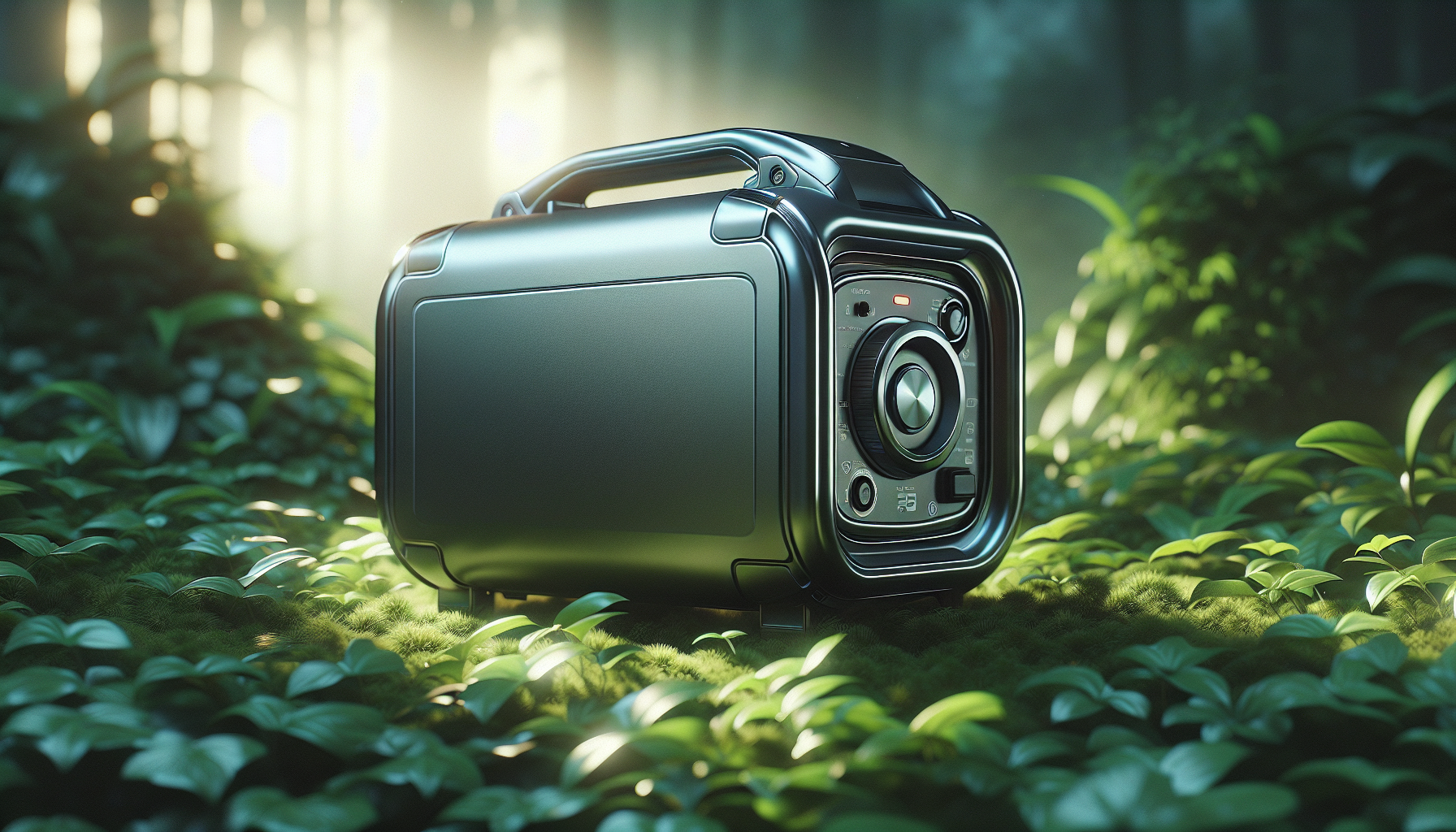
Choosing the Right Portable Generator for Camping
A portable generator for camping is like a Swiss army knife—compact, quiet and efficient. It’s not just about power; size matters too. A small generator can fit in your camper or the backseat of your car and can be easily carried to your campsite.
Quiet operation means you can enjoy nature without disturbing the peace. And with a quiet generator, you can get more fuel efficiency so you can camp longer without having to refuel.
Size Matters: Small and Light
Small and light generators are the underdogs of camping trips. These tiny powerhouses can provide the comforts you need like charging your phone, running a mini fan or even brewing that perfect cup of coffee. The Pulsar PG1202SA, Imuto’s 200W-14002 portable power station and the Jackery Explorer 240 are examples of small generators that has enough power for your camping needs. But remember, with small size comes limited power capacity so you need to manage your power usage wisely during your camping trips.
Quiet is King: Low Noise Levels Matter
No one wants to disturb their peaceful camping experience with the sound of a generator humming. That’s where quiet generators come in, operating within the 50-60 decibel range, same as a normal conversation. This way you can enjoy your camping without disturbing your neighbors, wildlife or drawing unnecessary attention.
The Predator 3500-watt portable gas generator for instance operates silently in the background, balance of power and low noise.
Fuel Efficiency: Longer Run Time, Less Refueling
When it comes to camping generators, fuel efficiency is a big deal. It stretches your fuel budget and reduces refueling especially during night time. Most portable camping generators can run for at least 8 hours at 50% of its rated output, perfect for extended use during camping trips.
So when planning your fuel needs, estimate 4 hours per tank and add extra fuel as buffer for unexpected situations.
Powering Your Campsite with an Inverter Generator
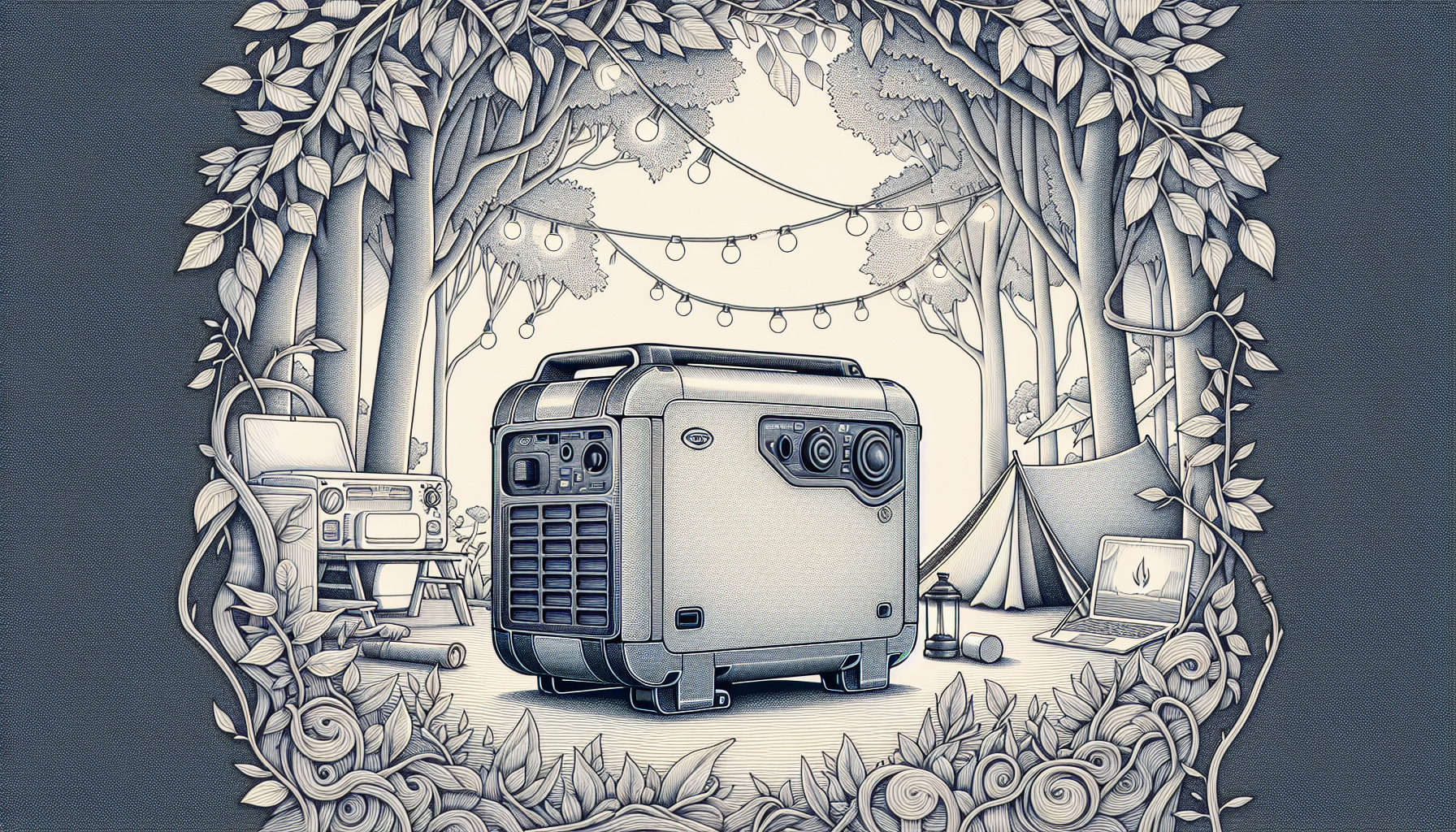
Choosing the right generator can make all the difference in your camping experience. Inverter generators are the favorite among campers. These generators are usually in the 2,200-watt power range, enough power for most camping appliances and tools. But what sets them apart is the clean power they produce, safe for charging and operating sensitive electronic devices.
And they are quieter too, less disruptive to campers and wildlife compared to traditional generators.
Clean Energy: Why Inverter Generators Are the Best
Inverter generators are like the superheroes of camping generators. They produce clean energy, safe for charging and operating sensitive electronic devices like smartphones and laptops. The inverter technology inside an inverter generator regulates the voltage level, protecting your electronics from voltage fluctuations.
So if you’re a camper who can’t live without your gadgets, an inverter generator might be your best option.
The Quiet One: Inverter Generators’ Low Noise
Inverter generators are the quiet champions of the generator world. They operate at significantly lower noise levels than traditional generators, with noise levels ranging from 50-60 decibels. They adjust their engine speed based on power demand unlike traditional generators that operate at constant speed.
Take the Yamaha EF2000iSv2 and Generac iQ3500 for example. These generators are quiet, 51-61 dBA and as low as 45 dB respectively, so they won’t disturb your camping experience.
Features to Look for in a Camping Generator
A camping generator is more than just a power source; it’s your key to a comfortable camping experience.
Features to consider:
USB ports to charge your devices directly
Enough running watts to power common camping appliances and devices
Portability features like wheels and handles to move your generator around the campsite
Must-Have USB Ports
In this digital age, USB ports on generators are a must. They allow you to charge your devices like smartphones, tablets and cameras without the need for an adapter. Just remember not all generators have USB ports.
The Honda EU2200i doesn’t have this feature so if you need to charge USB devices directly it’s a minus.
Keeping the Lights On: Running Watts
Running watts is the amount of power a generator can produce continuously. Running wattage is important to power common camping appliances and devices. For example to run common camping appliances like coffee maker and mini-fridge, especially for simultaneous use, a generator with at least 1500 watts of output power is recommended.
While small camping generators can’t power larger appliances like air conditioners or heaters, they’re perfect for powering smaller appliances and lights.
Portability Features: Wheels and Handles
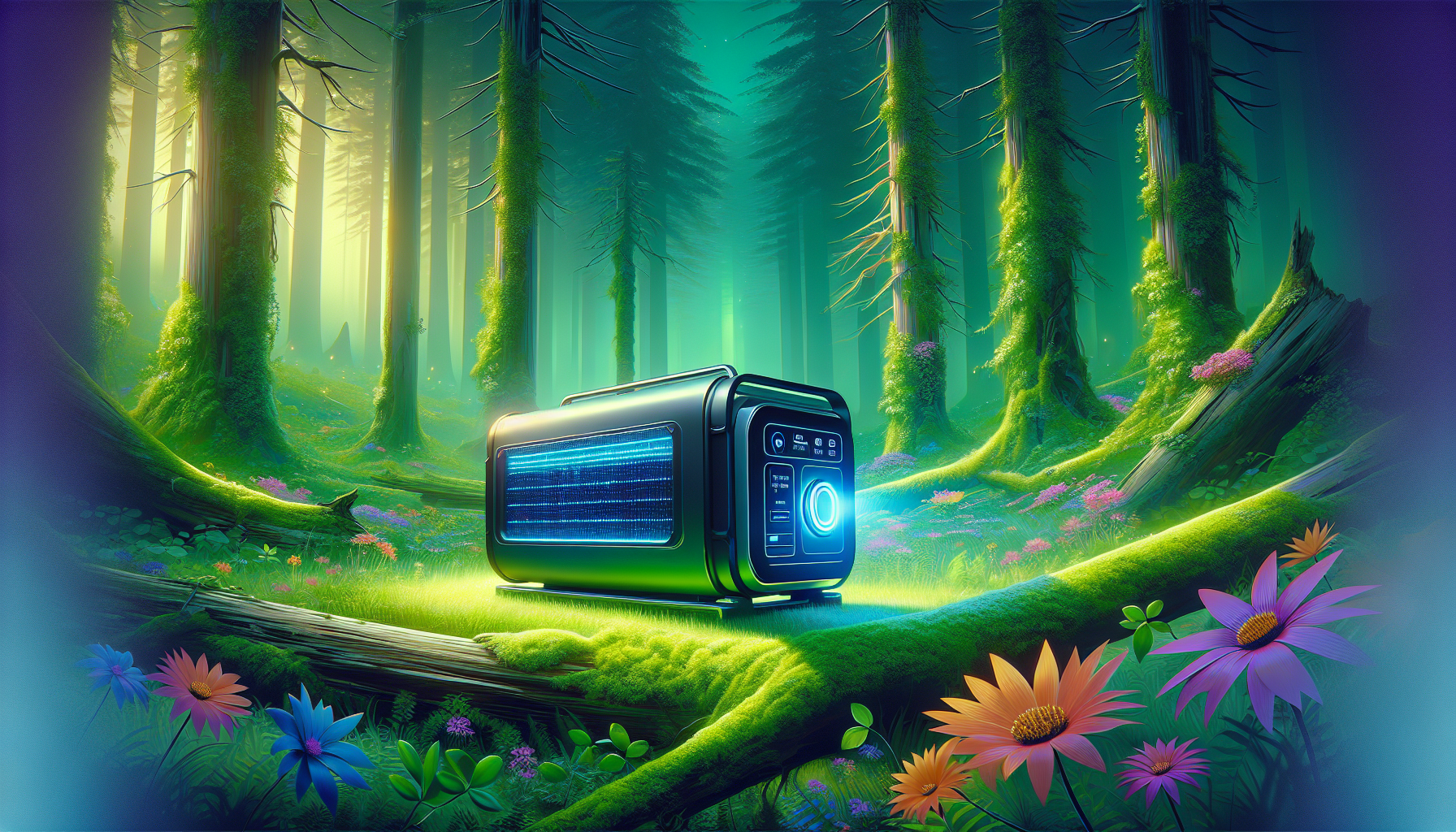
One of the best things about portable generators is, well, they’re portable. Generators with wheels and handles are easy to move around, perfect for camping where you might need to move your generator around the campsite. In fact some generator wheel kits have ‘never flat’ tires so you won’t get stranded with a flat tire.
The Honda EU3000iS and EU3000i Handi have optional wheel kits and handles for added portability.
Fuel Options for Portable Generators: Gas, Propane or Battery?
Choosing the right fuel for your generator can be a tough decision. Gas, propane or battery? Each has its own advantages. Gas generators are affordable and portable so it’s a popular choice for short term use.
Propane generators burn cleaner and has a longer shelf life than gasoline generators. And while battery powered generators may require a higher upfront investment, it’s an eco-friendly alternative to traditional gas generators. Also check out our Complete Guide to Propane Camping Stoves for more propane ideas.
Gasoline Generators: Availability and Power
Gas powered generators, like traditional generator models such as gasoline generators, are the old reliable of camping generators—always there when you need them. They’re affordable and portable for short term power needs.
The WEN 4750/3800 Watt Dual Fuel Gas/Propane Generator for example is a top budget pick that has 120 and 240-volt outputs and can produce up to 4,750 watts of power.
Propane Generators: Clean Burning and Long Shelf Life
If you want a cleaner burning option, propane generators are the way to go. They have:
Lower emissions than gasoline generators
Longer shelf life
Propane tanks can be refilled by a service company so you don’t have to transport heavy tanks
Just make sure to choose the right tank size for your fuel supply.
Battery Powered Generators: The Eco Friendly Choice
For the eco camper, battery powered generators are the way to go. These generators are popular for:
Quiet running
No emissions
Can be replenished for free with solar panels
Portability
While they may require a higher upfront investment, battery powered generators are a sustainable and portable power solution for camping.
Take the Bluetti AC180 Portable Power Station for example. It’s a convenient and eco friendly option for campers who need to power small appliances.
Generator Accessories for Camping
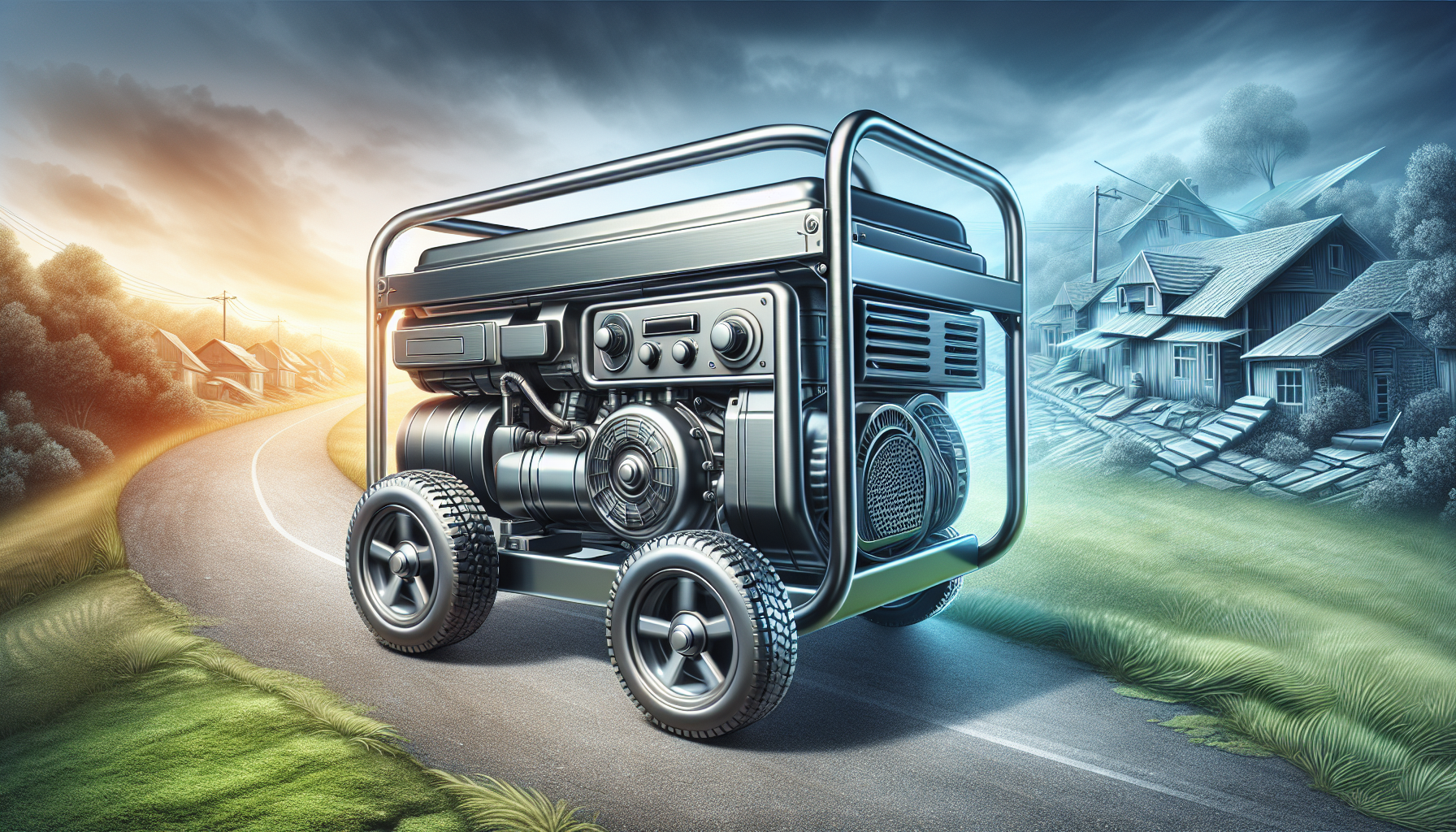
Accessories can add a whole new level of camping to your generator.
Here are some accessories you may need:
Wheel kits: add mobility to your generator
Protective covers: protect your generator from the elements
Extension cords: extend your reach so you can power your campsite easily
These accessories not only add to your camping experience but also to your generator’s usability and safety.
Protective Covers for Rough Weather
A protective cover is like a shield for your generator. Made from heavy duty materials like 600D polyester, these covers protect your generator from rain, dust and UV. They often have elastic drawstrings for a secure fit and reflective strips for visibility.
Before you cover your generator for storage make sure it’s in a clean, cool and dry place, free from dust and pests.
Power Strips and Extension Cords: Reach Further
Power strips and extension cords are like the arms of your generator, extending its reach and allowing you to power multiple devices at once. Choosing the right outdoor extension cord is important, with durability, power capacity and length to consider.
So whether you want to power your whole campsite or just your mini-fridge, a good extension cord can do it.
Generator Maintenance Tips
Like any piece of equipment your generator needs regular maintenance to run smoothly. This includes everything from oil changes to cleaning the air filters and even a monthly start up. Proper maintenance not only extends the life of your generator but also makes it work properly.
Regular Check Ups: The Secret to Longevity
Regular check ups and cleaning can add years to your generator’s life. This includes weekly checks and cleaning of air filters and monthly start up to make sure all components are lubricated and working. By listening closely during start up you can also catch any problems early and extend your generator’s life.
Storage Solutions: Preparing Your Generator for Idle Time
Proper storage of your generator during idle time is important.
Follow these steps:
Add fuel stabilizer to prevent fuel breakdown.
Run the generator until the fuel is gone.
Before you store your generator check for damaged wires and hoses.
Check the oil level.
Clean the generator.
By doing this you’ll have your generator stored and ready to go.
Storing the generator in a cool dry place will also reduce the risk of rust and extend its life.
Real Life Examples: How Campers Use Portable Generators
Portable generators are a camper’s best buddy, power for all sorts of things. Whether it’s for lights, charging devices or even brewing coffee, a portable generator makes camping more comfortable and fun.
And with the quiet operation of inverter generators you can enjoy nature without any interruptions.
Brewing Coffee in the Wild
There’s no better than brewing a fresh cup of coffee in the wild. And with a portable generator it’s easier than ever. You can enjoy a hot cup of coffee while surrounded by nature.
Not to mention brewing coffee outside saves on electricity bills and your Starbucks bill. So next time you’re camping don’t forget to pack your coffee maker with your generator.
Lighting up the Night: Generators and Campsite Lighting
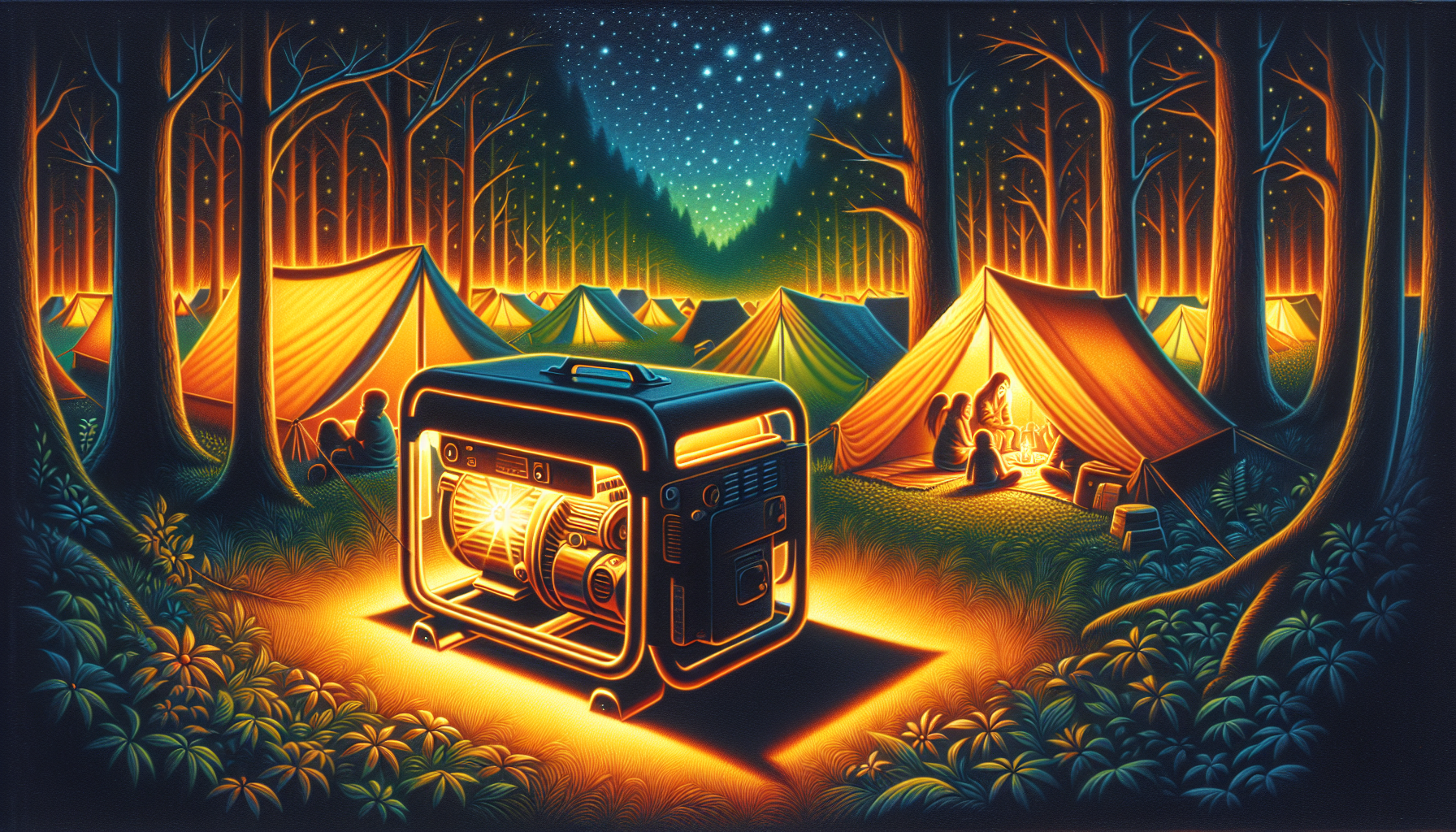
When it comes to camping a well lit campsite not only adds to the atmosphere but also safety after dark. Portable generators can power all sorts of lighting solutions from fairy lights around your tent to a bright lantern for midnight snacks.
So when the sun goes down you can rely on your trusty generator to power and light up your whole house.
Buying Options: Top Portable Camping Generators
Choosing the right generator can be overwhelming but with a little help you can find the perfect one for your camping needs. The top portable camping generators combine reliability, quiet operation and power. Whether you’re a weekend warrior or a seasoned pro there’s a generator out there for every type of camper.
Honda Generators: Reliability and Quietness
When it comes to reliability and quietness Honda generators stand out. Models like the Honda EU2200i Companion, EU3000IS and EU7000IS are known for their reliability and quietness. These models offer power output from 2,200 to 7,000 watts. So whether you’re going for a weekend camping trip or a cross country RV adventure a Honda RV generator could be your camping buddy.
Other Brands with Value and Performance
While Honda’s are great there are other brands that offer value and performance. Here are some alternatives:
Yamaha’s EF2000iSv2 generator which exceeds Honda’s emission compliance and uses high quality components
Champion generators 3 year warranty and shows commitment to quality
Anker 757 PowerHouse modern connectivity
WEN’s 9500 Watt Remote Electric Start Generator which is versatile and caters to the current camping generator trends
These are alternatives to Honda generators.
Summary
Conclusion
As we’ve seen the right generator for your camping trip depends on many factors from size and noise to fuel efficiency and type of fuel. Whether you’re looking for a compact, quiet and fuel efficient generator or one with USB ports, enough running watts and portability features there’s a generator out there for you.
Remember regular maintenance and proper storage will ensure your generator will be your camping buddy for many trips to come.
So next time you go camping pack your portable generator and power up!
FAQs
What size portable generator do I need for camping?
For camping you’ll need a portable generator with 500-1000 watts to charge devices, power small speakers and lighting and run kitchen essentials. Aim for this range to meet your basic power needs while camping.
How many hours a day can I run a portable generator?
You can run a gasoline powered portable generator for 6-16 hours at a time and a propane powered portable generator for 150-200 hours at a time. Unlike standby generators portable generators are designed for shorter increments of time 6-18 hours and not recommended for long term use during power outages.
What size portable generator do I need to power my house?
To power a house you’ll need a portable generator between 5,000-8,000 watts which can support appliances like air conditioner, sump pump, refrigerator and more.
What size generator for 30-amp RV?
For 30-amp RV you’ll need 3,500-3,600 watts to power most appliances and equipment. This size generator can run a small air conditioning unit, microwave oven, refrigerator and lights at the same time without overloading the system.
Why is size important when choosing a camping generator?
Size is important when choosing a camping generator because a compact and light weight is easier to carry and transport and transporting the generator is a consideration.
